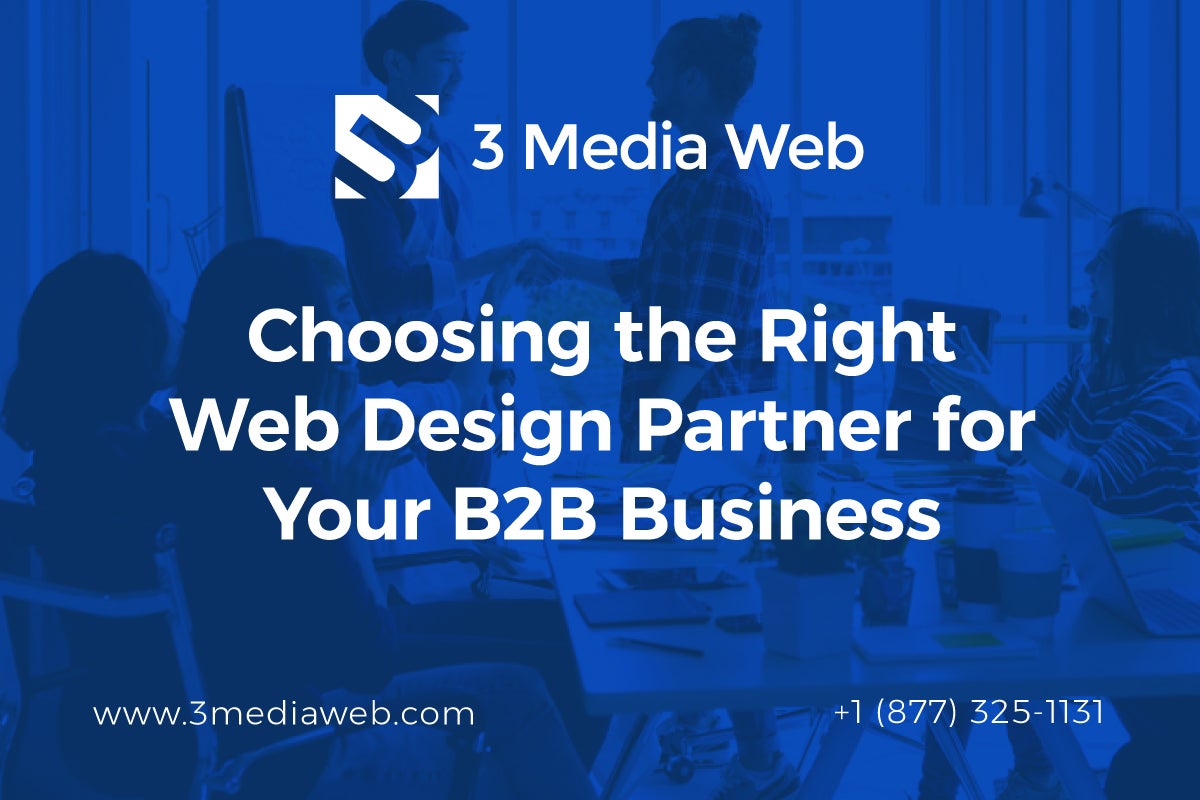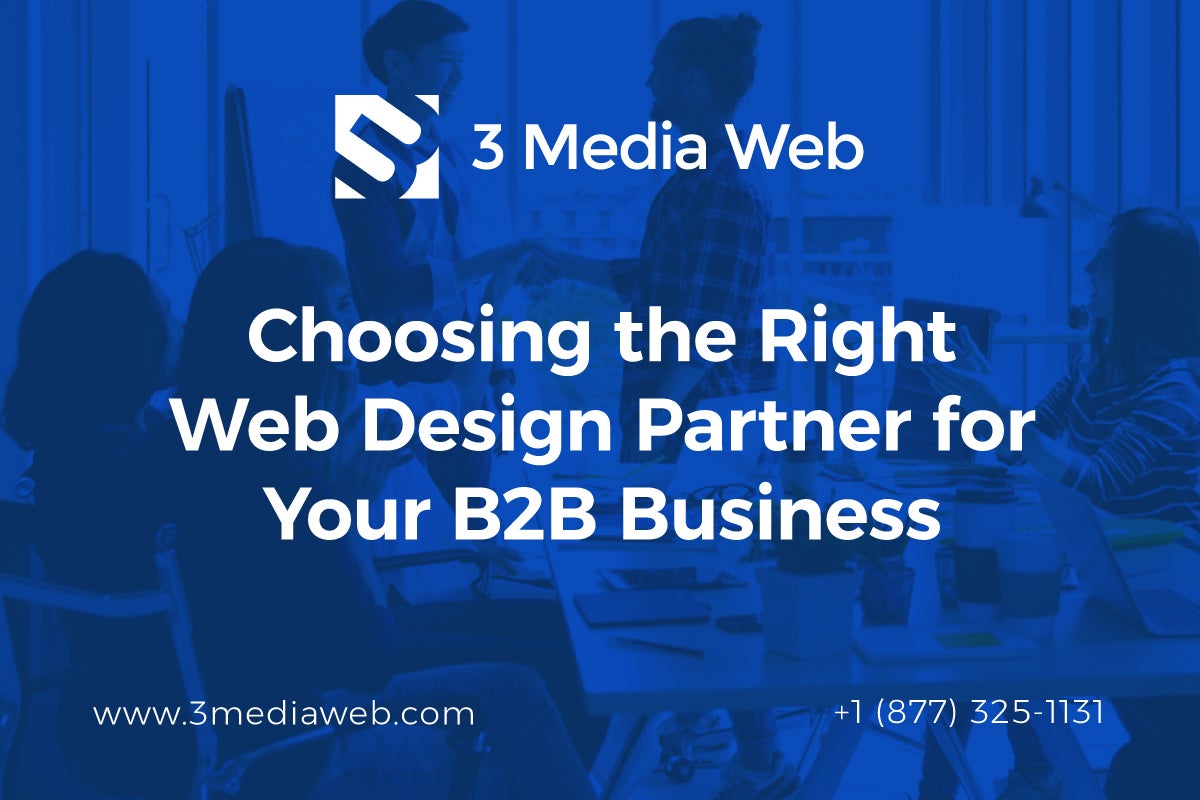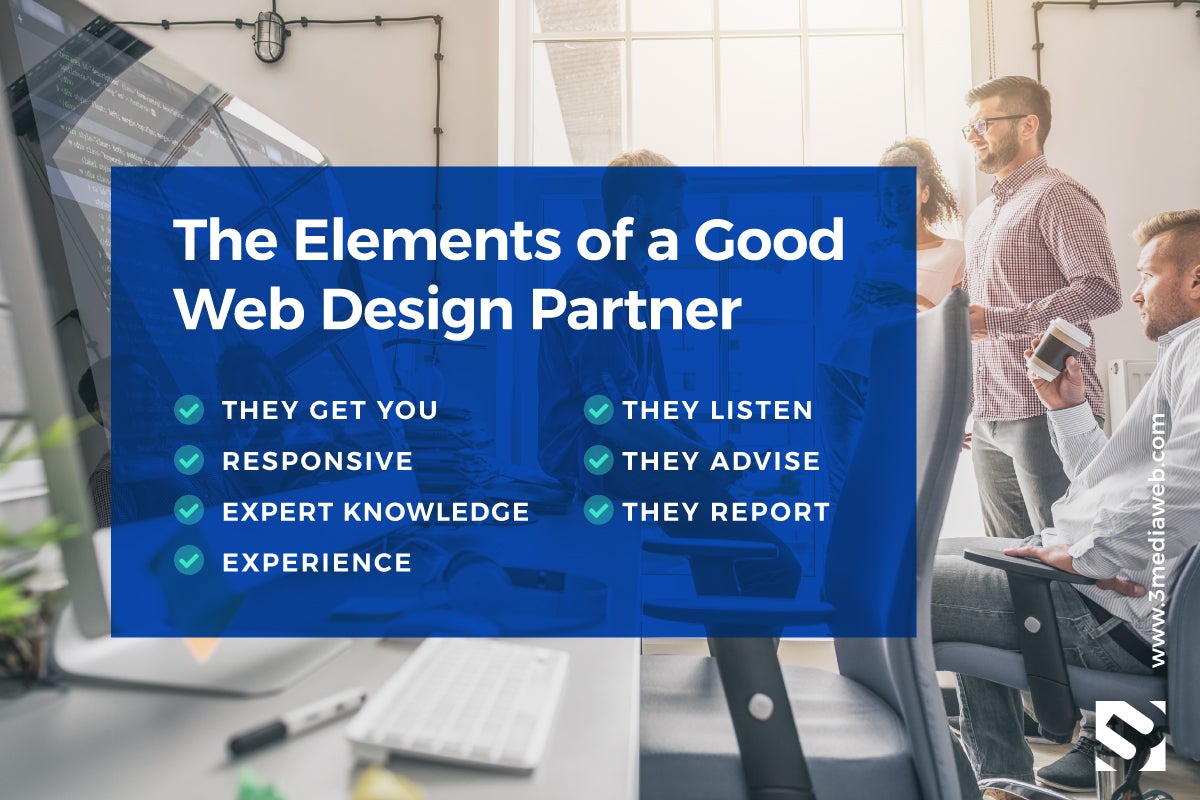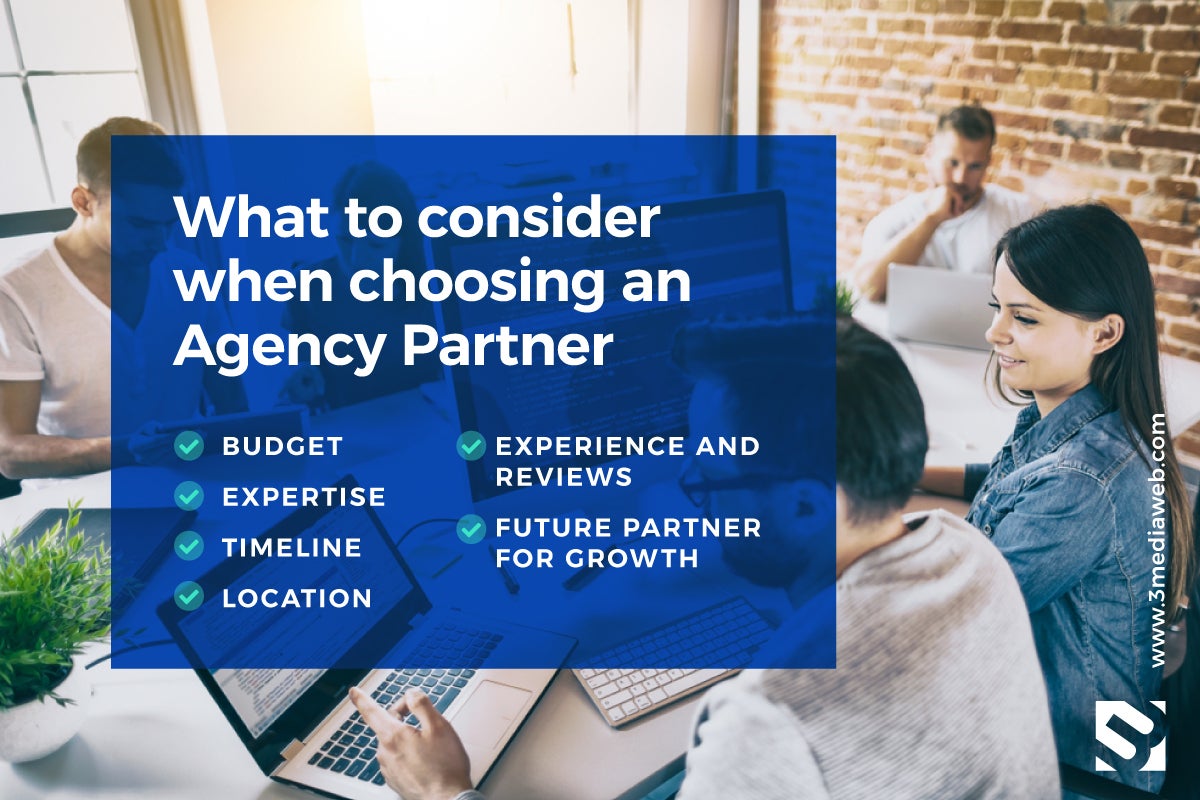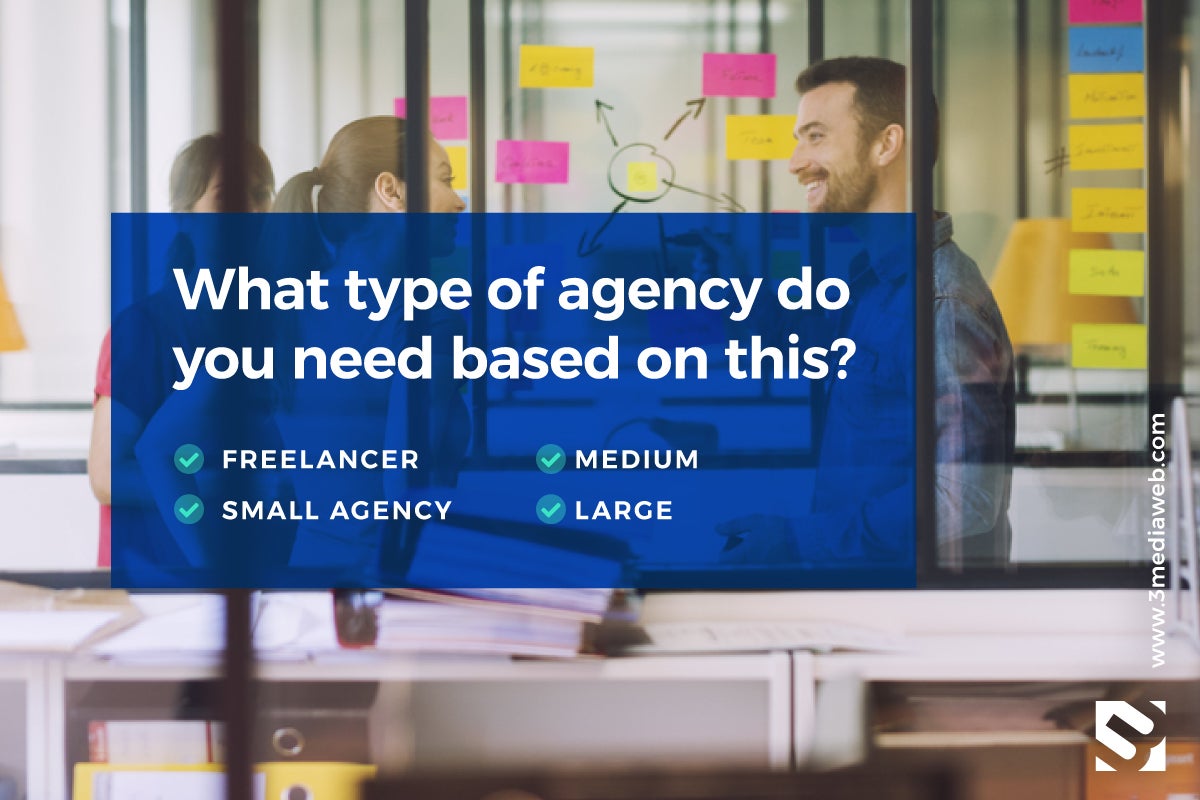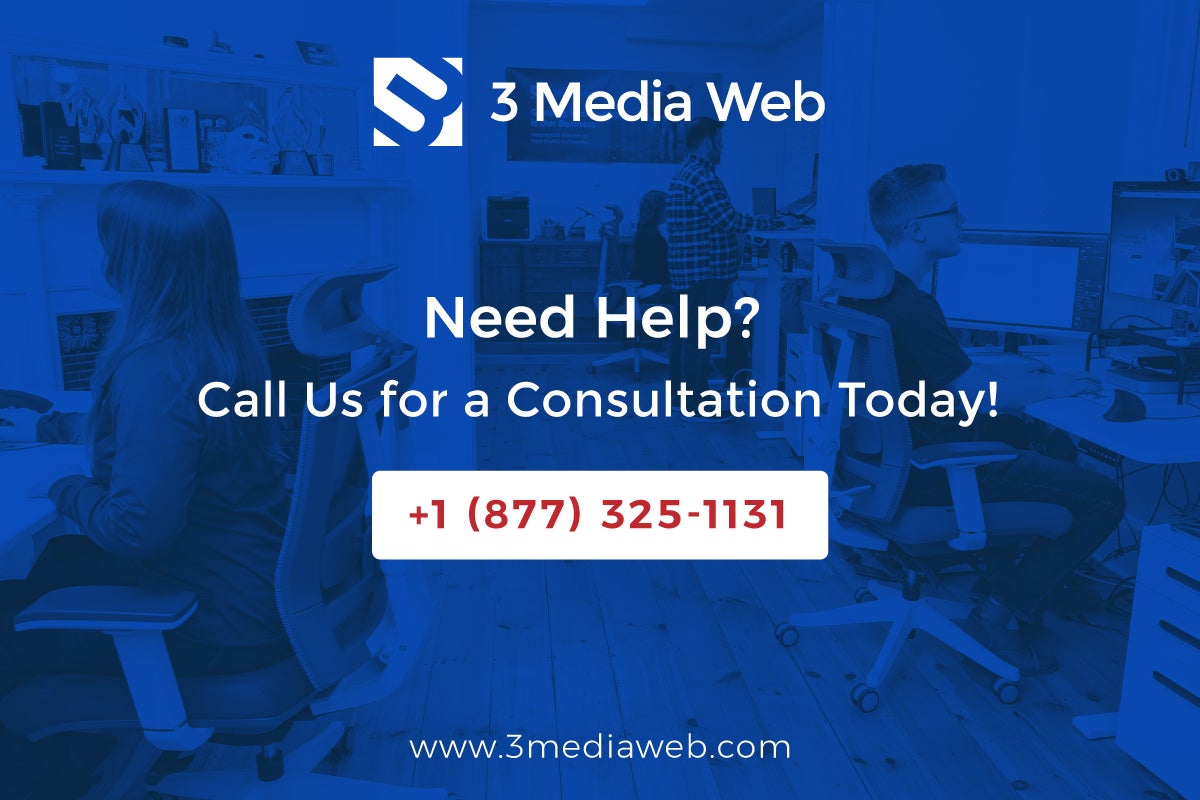Your website is one of the most important investments that your business will make. Like any joint venture, your website’s success largely rests in the hands of your web development partner. From the site’s design and functionality to the ongoing hosting and development needs after the site officially launches, choosing the right partner can make or break your website – and your business.
Your web design and development partners are creating your company’s “online business attire” so to speak. Everything from the first impression your website will make on every visitor to your company’s ongoing message, image, and “packaging” rests in the hands of your agency partners. But unlike a suit or pair of shoes that don’t quite fit right or eventually go out of style, changing your website’s “outfit” once it goes live is not as easy as changing your clothes.
The stakes are much higher.
The Elements of a Good Web Design Partner
Choosing the right agency to build and maintain your website is as important as choosing the right business partner and staff for your company. It’s an ongoing business relationship that will affect your business long after the website has been launched (or redesigned).
In most cases, your web development and design agency will also provide hosting for your website, so the partnership will be an ongoing investment in the day to day operations of your business as well as your online presence.
Here are some of the things you need to consider to find the best partners for your short and long term goals.
Can the Agency Help You Meet Your Web Design and Business Goals?
A good website that delivers ongoing results is much more than a few service pages with basic information. From the design aesthetic to functionality and user experience, your website tells your company’s story and shares your message and services with a global audience. That can be a tall order if the partnership isn’t a good fit.
Here are some of the basic questions and factors to consider when vetting an agency:
Budget – can they deliver within your project budget?
Timeline – can they complete the project and meet your objectives within a reasonable timeline?
Process – how involved will you be at each stage, what is the review and feedback process, are your workflows compatible? Building a website is a time consuming and involved process, so knowing how your agency works will be just as important as the final result.
Location – do you need to work with a local team and have face to face meetings? While many companies and agencies are now set up to conduct most if not all of their work remotely to some extent, every project is different and you should know what level of access you can expect to the people performing the critical work on your website.
Keep in mind that bigger isn’t always necessarily better when it comes to agencies. Will you be a small fish in a big pond? Will your project get the attention it deserves? How much access will you have to your development team? Ironing this out ahead of time can save your company a lot of time, money, and headaches down the line.
Experience and reviews – have they worked on projects of similar size and scope as your own? Do they have a robust portfolio of happy and satisfied customers with solid and positive reviews? Remember you’re not just vetting the agency, you also have to vet their track record, history, and previous results to make sure they can really deliver on their promises.
Future partner – remember that the partnership doesn’t end once your website has been developed. You’re going to have an ongoing relationship long after the site goes live, so you want to choose partners that you can see yourself working with long term. Along with the business compatibility factor, does your agency “get” you and your business?
Your website is more than just window dressing, it’s an expression of your company and your brand’s personality. Your website’s tone and aesthetic should match your company’s personality, and your relationship with your agency partners should feel like an extension of your company because ultimately it will be to some degree.
In addition to the technical aspects of the partnership, you want to work with an agency that shares and appreciates your values, or at the very least can tailor and deliver your website’s message so that it reflects your own voice.
Types of Agencies
There are many options available depending on the scope of your website, your timeline, and your budget.
Freelancer – cost-effective and cheaper, but usually limited to one or two people with fewer resources
Small to a mid-sized agency – small agencies are usually local with a team of at least 5 people, specializing in semi to full-service websites that typically range between $10k to $40k for a full website. Usually, they specialize in a specific platform like WordPress and can provide ongoing hosting and support.
Pros of working with a small to the mid-sized agency:
- Usually offer custom design and development
- Full team to better meet deadlines and quality standards
- More experience
- Have standards and processes in place
- Can meet deadlines
- Less expensive than larger, national agencies
Cons:
- More expensive than a freelancer or solopreneur
- Less flexibility/more rigid with process and deadlines
Large Agency – usually national or global, offer full-scale services and generally cater to larger clients with projects starting at $40k
Pros of partnering with a large agency:
- Established reputation and track record of success for enterprise companies
- One-stop-shop for web design, development, hosting, and marketing
- Offer long term service and usually take more of a strategic approach
Cons:
- Project timelines are usually longer
- Usually require a retainer contract
- More expensive
- Larger teams
- Can be slow to communicate
There is no such thing as a “one size fits all” blueprint or template that works for everyone. Your website and brand are as unique as your personality and deserve thoughtful management and consideration from your in-house team as well as your agency partner.
Like any relationship, your agency partnership should be based on mutual professionalism, experience, respect, and goals.
Choose wisely!
